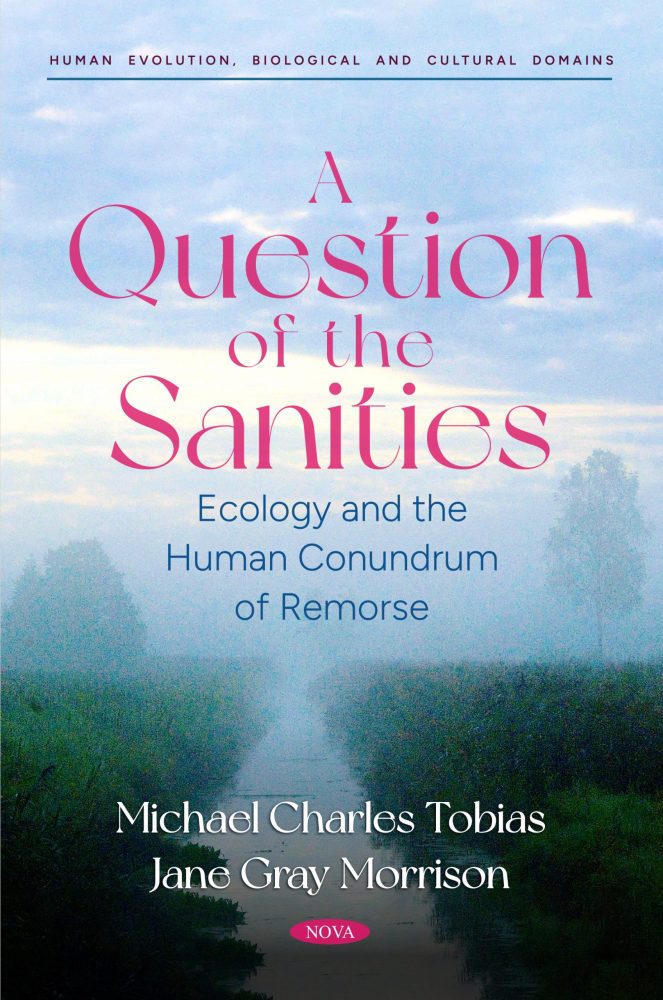 |
 |
 |
 |
|
A Question of the Sanities: Ecology and the Human Conundrum of Remorse
By Michael Charles Tobias, PhD (Author) Jane Gray Morrison (Author) – Ecologist, Filmmaker
From Nova Sciences Publishers, New York
For Your Reading Interest:
https://novapublishers.com/shop/a-question-of-the-sanities-ecology-and-the-human-conundrum-of-remorse/
Every new work (both fiction and nonfiction) by Tobias and Morrison is a cause for gratitude and celebration. Their latest book, A Question of the Sanities: Ecology and the Human Conundrum of Remorse, is a penetrating treatise of essential, perennial ideas, and insightful new ones. Grounded in the heartbreaking realties that the biosphere is unraveling with unrelenting speed, each of the 31 essays illuminate an aspect of human biophilia and biophobia, our confoundingly mixed relationships with the greater world of other living beings. This work is unique because it dares to ask the questions that might save us, such as: "In the persistent struggle between violence and unconditional love … what can we actually manifest that is something new and thoroughly refreshed?" … To read this indispensable book is to be at once educated, delighted, and transformed — not only intellectually but also in our heart of hearts that calls for a deeper and more meaningful existence
– Michael Pastore, Author, Publisher of Zorba Press, https://ZorbaMedia.com
"In a time when human proclivities are entwined with, and overwhelming natural systems, we seem to be lurching towards Armageddon. We wonder if there is a safe harbor still in sight. This book – A Question of the Sanities – provides an unblinking view of the future, but gives a philosophical understanding that hope is possible. It should be read by all those of us trying to make sense of our world."
- Dr. G. Wayne Clough, PhD, 12th Secretary of the Smithsonian Institution, President Emeritus of the Georgia Institute of Technology
This book is an in-depth examination of the long-looming crisis of ecological consciousness afflicting our species world-wide. While many have addressed the climate crisis, biodiversity loss, inequities between human nations and communities, this may well be the first work to seek out the psychoanalytic roots of that global set of debacles. By examining history, paleontology, ecosystem dynamics, the mathematical and quantum modeling utilized by biologists, biochemists, demographers and ecologists, the Authors examine with clinical and unstinting clarity the complex of self-destruction comprising ecological psychology and the natural sciences, philosophy and the humanities, to ask and answer the question: Is our species destined to survive or fail?

